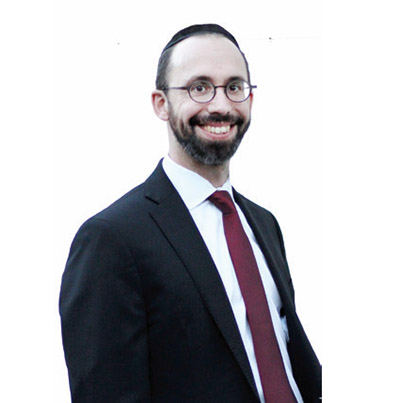
Let’s put ourselves in Yosef’s shoes right after he was sold by his own brothers as a slave. Can you imagine the feeling of betrayal and abandonment? He had to sit alone in a wagon, heading down to Egypt to be sold as a slave. Gone were his dreams of leading klal Yisrael; his being the chosen child of Yaakov would soon be a fading memory. One can practically feel the total darkness and despair that must have enveloped Yosef at that moment.
The Jewish people felt this palpable feeling of doom just over 50 years ago, in the spring of 1967. Our precious little Eretz Yisrael seemed on the brink of destruction. Massive Arab armies were openly preparing to attack on all sides. Their intentions were very clear.
On June 1, 1967, the Palestinian chairman Ahmed Shukairy shouted out from a podium in Yerushalayim, “We shall destroy Israel and its inhabitants. As for the survivors—if there are any—the boats are ready to deport them.” Egyptian President Nasser threw out the U.N. peacekeepers from the Sinai and ordered the Straits of Tiran blockaded to prevent Israel’s access to the Red Sea. Syria and Jordan called up all their armies to Israel’s borders. Panic ensued in the streets of Israel. Literally thousands of graves were being dug in public parks throughout the country. Another Holocaust appeared on the horizon.
But tefillos from Jews around the world were many as well. They rose to the heavens, with the knowledge that there was only one source of salvation: Hashem, the Almighty, Who watches over His nation. The war that began June 5, 1967, and the victory that ensued was nothing short of biblical in its proportion. The entire Egyptian air force was wiped out in hours. Yerushalayim and the Kotel were liberated. Within six days, the war was over and Eretz Yisrael was over four times its original size. Nations around the world could not deny the Hand of Hashem in what had just happened.
Getting back to Yosef, there is no denying how bleak the future looked for him when he descended to Egypt. Yet, the Midrash (Midrash Rabbah 88) informs us that Yosef did not despair. The Midrash reminds us of others who did not despair: Avraham and Sarah who waited so long for a child; and Yaakov who waited for Yosef’s return for so many years. Yosef, who kept his dear father Yaakov in mind when he was experiencing his trials, knew that his prophetic dreams would somehow come true. The Midrash calls on us not to lose hope in our everyday trials, for Hashem is rooting for us to overcome the challenges and pass the tests to emerge stronger and fully victorious.
Further, Rav Elya Svei, zt”l, tells us the Midrash, gives us a deep insight into the parsha, noting that “Yaakov was watching the matter of discord between the brethren.” Rashi says the word shomar—watch—here means “wait.” Yaakov was waiting and watching eagerly to see how and when the prophecy that his son Yosef would become a ruler would come to fruition, even when it seemed impossible. He knew the ultimate goal was attainable, but how and when it would happen was hidden.
Based on this explanation of the Midrash, we learn an important lesson. The Midrash is not giving us comfort that Hashem is there for us through our struggle—though we know that to be true—but rather is teaching us a formula for salvation to come. In order for the ultimate redemption to occur, we as a people need to wait patiently, believing with certainty that it will happen and just waiting to see how it will transpire as we maintain our connection with Hashem.
We live in a rapidly changing world. Corporations that were “too big to fail” have gone bankrupt overnight. Countries change leadership and policies. Mighty empires have fallen suddenly. Technological breakthroughs change our world in a moment’s notice.
Today, we are still in exile and still awaiting Moshiach. When it will happen, we don’t know, but we can help make it happen! Hashem is orchestrating events for us. Like our forefather Yaakov, we need to keep watch and be patient for the plan to unfold and the deliverance to occur, all the while doing our part to gain Hashem’s benevolence to make it happen soon.
By Rabbi Baruch Bodenheim
Rabbi Baruch Bodenheim is the associate rosh yeshiva of Passaic Torah Institute (PTI)/Yeshiva Ner Boruch. PTI has attracted people from all over northern New Jersey, including Teaneck, Paramus, Rockaway and Fair Lawn. He initiated and continues to lead a multi-level Gemara-learning program. Recently he has spread out beyond PTI to begin a weekly beis medrash program with in-depth chavrusa learning in Livingston, Springfield and Fort Lee. This year he joined Yeshiva Heichal Hatorah as a Gemara iyun rebbe.
His email is [email protected].













